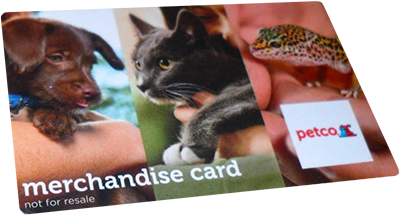
Buying Fraudulent Gift Cards Online a Growing Epidemic
Let's face it, most folks actively seek ways to save a couple bucks, especially when it comes to things we generally spend quite a bit on, such as food, products, and even pets. Some use coupons while others wait for clearance sales, but what about buying second-hand gift cards from online outlets? There is certainly no shortage of them these days, with new online exchanges popping up on the Internet with every passing year. PlasticJungle.com, CardCash.com, and CardPool.com are some of the more popular ones.
The concept behind these gift card exchanges is they will pay you a percentage of the balance remaining on the card, generally in the neighborhood of 65%. Once you have mailed in your card, and funds are confirmed, the company will either mail your payment back, or transfer it to you instantly via PayPal. At that point, they resell your card at roughly 15% less than the balance, netting them a profit of 20%. This system has enabled gift card holders to part ways with their unwanted cards for a variety of reasons. Perhaps you aren't a coffee drinker, but your friends and family continue sending you $5 gift cards to Starbucks for every birthday on Facebook over the past several years, or what if you moved out of the area and the only way of utilizing a certain card requires a trip several hours away. The possibilities are endless, and gift card exchanges certainly make sense. So what's the problem, you ask?
In a confirmed report, a Petco gift card with a balance of $230, was purchased during a 30%-off sale from CardCash.com, in which the purchaser ended up paying only $150. Naturally, who wouldn't jump on a deal like this to get $80 free? Rather than a gift card, what actually arrived was a merchandise card. The key difference between a merchant card and a gift card, is that a merchant card is generally issued when a return is made without a receipt. This enables companies to track returns without interfering with profit reporting, whereas gift cards count as purchases. Items purchased with either type of card however, are not logged as profit, as the original purchase has already been made. This may not seem like a big deal, but the rabbit hole goes a bit deeper. Let's continue, shall we?
Petco has relayed to the Central Florida Aquarium Society that this is not an isolated incident, and is a growing epidemic plaguing businesses in numerous cities across the nation. What is actually happening is a combination of theft and return fraud. They explained that a shoplifter leaves the store with a high-priced good, at times simply tucked under their shirt. They then return the item for store credit, often to a different location. Sometimes, items are returned to an entirely different chain. Most stores require some form of identification for tracking purposes rather than for confirming identity. Petco stated that ID's from transients and homeless are often used, possibly borrowed in exchange for some cash, enabling these criminals to keep their identity a secret. Because they have no receipt for the item, the store issues them a merchandise card, which is later sold to a gift card outlet for 65% of the balance. While selling gift cards may not be a criminal offense, selling stolen goods is.
The easiest way to determine which type of card you have is by calling the toll-free number on the reverse of the card. Neither the automated system, nor a live support person will be able to tell you the balance remaining on a merchant card over the telephone. This is a process that must be performed in-store.
CFLAS will continue working with Petco and other local stores facing this issue, providing crucial information, joining in the fight against this type of fraud. If you receive a merchant card in lieu of a gift card from any online gift card exchange, please either contact the store directly, or you may anonymously contact us with the details regarding your purchase, including the website, date of purchase and card balance, and we will forward your information on to the proper channels.


